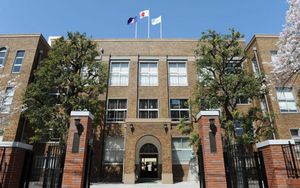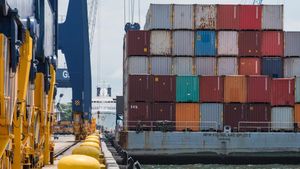A month after Donald Trump’s second term began, world leaders and scholars alike are taking stock of what appears to be a significant shift in U.S. foreign policy. Historically, alliances forged since World War II have maintained the global order, yet experts warn this may be changing dramatically.
John Blaxland, a professor of International Security at the Australian National University, stated, "Clearly there is deep concern around the world about this being a retreat from leadership (by the United States) to a more transactional, unilateralist approach to international relations." He described the current climate as uncharted territory, something no one has experienced before.
During the recent Munich Security Conference, U.S. Vice-President JD Vance stirred considerable discussion by proclaiming, "There is a new sheriff in town under Donald Trump’s leadership," and alarming leaders by asserting internal threats to democracy could outweigh external ones. Vance expressed worry about Europe’s withdrawal from fundamental values shared with the U.S., stating, "What I worry about is the threat from within — the retreat of Europe from some of its most fundamental values, values shared with the United States of America."
This change signals a potentially troubling pivot for the cohesion of transatlantic ties, raising concerns about support for Ukraine and the broader implications of U.S. foreign engagement. Shortly after Vance’s statement, Trump seemingly softened the U.S. stance toward Ukraine, making comments reminiscent of the rhetoric used by Russian President Vladimir Putin.
Historian Andrew Gawthorpe remarked, "For the first time there is a rift in the Western Alliance." He emphasized the historical importance of this moment, likening it to the period immediately following World War II when the U.S. cemented itself as a central player upholding international security and order. Gawthorpe speculated about Trump’s intentions, saying, "It certainly seems like Trump’s dream is to join with Vladimir Putin in redrawing the security order in Europe."
Analysts are now closely watching the potential fallout from this fractured alliance. Blaxland added, "I think everyone is looking for a plan B right now," showcasing the urgency felt among governments grappling with the unpredictability of U.S. diplomacy. Despite these concerns, some experts feel major international institutions remain resilient. Donald Heflin, former U.S. diplomat and Senior Fellow at Tufts University, asserts, "The U.S. is a very important player. Are we indispensable or could these alliances pick up and get the work done? I think the latter. I think they will survive."
Yet, lurking within this uncertainty is opportunity for other global players like China. Blaxland warned, "This is a huge opening for China," indicating shifts could empower China’s influence worldwide. Gawthorpe elaborated on this prospect, forecasting, "We’re going to be living in a world with three big superpowers: the United States, Russia, and China," and raised alarms over how smaller nations could struggle to assert their interests.
Gawthorpe cautioned, "The rules and international laws and institutions... are seemingly wilting away, replaced by this rule of strongmen." He echoed sentiments of increasing global instability and potential contention, acknowledging, "(To say) we’re heading toward war is too pessimistic, but we can say the situation globally is becoming much more contentious."
These rapid changes have instigated dialogue about the future of international cooperation and what steps need to be taken to safeguard democratic principles and partnerships among nations. While the world has often looked to the United States for leadership, this juncture presents numerous questions about who will facilitate global peace or whether cooperation will dissipate altogether. The eyes of the globe remain closely fixed on this transforming relationship and its ripple effects on the future of international policy.



